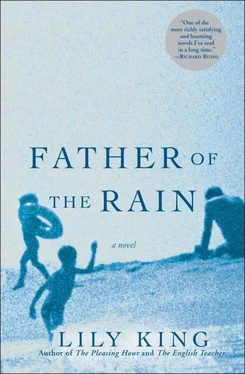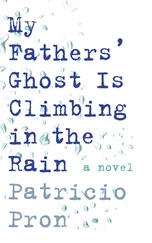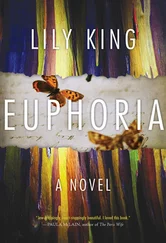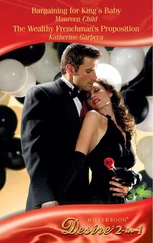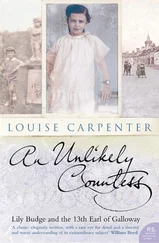“Stand right here. A little farther over. Good. Now,” he stands behind me and lifts my racquet back for a serve, “try and snap your wrist at the top, like this.” He takes my arm and slowly lifts it over my head, flicking my wrist at just the right moment. He smells like lime and cigarettes, his Caribbean smell.
I double-fault two more times.
My father comes back down to the baseline.
“If you’d just leave her alone, she’d be fine, Gardiner,” Catherine says. “She just needs to warm up a little.”
After that, I get one in. Patrick, startled that it has gone in, misses it entirely. My father high-fives me. I win the next point, too, by hitting down Catherine’s backhand alley.
No matter what mood I begin with, I always have the same feeling playing tennis, a sort of claustrophobia despite the open space, fresh air, and wind in the trees, combined with a boredom bordering on despair. I keep looking at the clean lines and thinking about the black man in his white shorts. He has left glasses of ice water and a plate of sliced melon on our bench. For three sets a day I’m caged here, the white lines flashing in the heat, the sky too hot to be blue, and the sun searing our already burned skin.
My father never gives up. I don’t think he feels anything but completely alive and exhilarated on the tennis court. He can’t understand my mood, the stupor his ambitions for me puts me in. Even in the last game of the third set (0–6, 1–6, 0–5), he is still giving me tips, showing me the footwork involved in receiving an overhead lob. I watch him move at a backward diagonal, his lovely crisscrossed steps a dance I will never learn. I hit my best shot in the last point, a low crosscourt pass, but it falls just beyond the line.
“Out,” Patrick yells, thrilled not to have won but for the match to be over.
“Bullshit!” my father yells back. “It was a perfect shot.”
“Baloney, Gardiner,” Catherine says.
He’s too pissed to speak and threatens her with a finger as he marches over to their side. My father has a reverence for the rules of tennis, and is a gracious loser on those rare occasions when he does lose. But his desire for my one beautiful shot to be in is far greater than his abilities of perception.
The court is clay, however, and Patrick is pointing to the freshly made imprint, just outside the line.
“That’s bullshit,” my father says again, but weakly.
“I’m sorry, Dad.”
He shakes his head as we walk off the court. “You just need to play more. Practice makes perfect.”
But we have played every day for a week and I’m only getting worse.
I stand next to the blond boy that night at the salad bar.
“How’s your game?” he asks, staring down into the cottage cheese
“I suck.”
He smiles but does not look at me. “Beach afterwards?”
“Okay.”
“Don’t bring your boyfriend.” He flicks his eyes at Patrick, three people ahead of us.
“He’s my brother.”
“Step,” he corrects me. “Big difference, Daley.”
He’s found out my name and my family configuration. His power thrills me. I can barely eat. Things are tense at our table. Frank has not shown up.
“You play with fire, you’re going to get burned,” my father keeps saying. Even here he has his A-1 for his steaks. His nose has already started to bead up. Catherine isn’t eating much either. She jerks her head up every time someone comes through the thatched archway into the restaurant. She drinks. This pleases my father.
“You’s keeping up with me good tonight,” he says, trying to pinch her tit discreetly. She flinches away. “Oh fuck that,” he says under his breath.
Every night there is baked Alaska. The kitchen staff wheels it out and everyone is expected to stop eating and talking and watch it flame up.
“Oh for chrissake, don’t clap for these monkeys,” my father says.
There is dancing after dinner to a steel band. Usually my father and Catherine stay and dance while we go back to the cottage and watch TV, but tonight she doesn’t want to.
“It’s all right, my little pussy,” my father croons at her, but she’s just watching the doorway now.
“I know what you need,” my father says, and does something to her under the table.
“Keep your fucking hands off me!” she says loudly. People look, even Elyse and her new family all the way across the room. Even the blond boy who hasn’t glanced at me since the salad bar.
I tip my head to the beach. He nods. I get up then, leave Patrick, leave Catherine, leave my father and his purple sweaty face and yellow eyes and shaking hands and follow the blond boy to the sand.
The sun drops early at the equator. The sky is dark blue, no hint of a sunset left, just a cold pale line at the horizon. The sand is still warmer than the air. We walk down the beach away from the restaurant and all our cottages. We tell each other where we live. He’s from Connecticut. When we get far enough away from the last old lady collecting shells, he pulls me down on the sand and starts kissing me. His kisses are hard and wet, purposeful, like he is trying to get something out of my mouth with his tongue. His saliva is all over me and makes my skin cold. I think of stopping him, then remember where I am, in St. Thomas, staying at that cottage that I don’t want to go back to until all the fighting is over. So I refocus, try to remember Neal Caffrey’s kisses and how floaty I felt afterward, and I try not to think about the Penthouse letter and the dead star feeling, and when all that fails I think once more that I should stop him and go home, but then I remember where I am again.
He puts his hand up the back of my shirt. “No bra,” he whispers, his first words in a long time.
No breasts, I feel like saying, but he’s about to find that out. His hand begins to travel around to the front. When it’s just below my armpit, I reach up and pull it out. I stand up, the breeze blowing cold on my spit-soaked face.
“Prude,” he calls as I begin walking toward the lights of the cottages. “Stuck-up prude!”
There is only one light on in our cottage. The bedrooms are dark, and the other lamp in the living room is broken, smashed to pieces on the floor. Patrick and Elyse are on opposite ends of the couch, crying.
“They’re going to get a divorce!” Elyse wails when she sees me.
“No, they’re not.”
“I think they are,” Patrick says, the skin around his eyes even redder than his sunburn.
“They just had a fight,” I say.
“You weren’t here. It wasn’t a normal fight. She tried to strangle him.”
“They were drunk. They won’t even remember it tomorrow.” I realize they don’t understand about the drinking. They take the drunk behavior as seriously as the sober behavior. They don’t get the problem at all. “They’re alcoholics.”
“What’s that?” Elyse asks.
“It’s when you can’t stop drinking alcohol, like vodka and gin and all that stuff. The alcohol makes them behave like that. They can’t help it. It’s not really them talking.”
“They’re not alcoholics,” Patrick says.
“Yes, they are , Patrick.” My mother explained to me about my father’s drinking this winter. She figured out that he was an alcoholic on their honeymoon, and it only got worse. She tried to leave him twice before, but he promised to change and did for a while, but then slipped back. She told me it was like a sickness, only the people who have it don’t believe they’re sick.
“Gardiner has a job and a house and he’s the president of the tennis association at the club. He’s not an alcoholic .”
“Have you ever seen him sober at the end of the night?”
Читать дальше
